In the digital age, content is king. However, creating engaging and informative content that resonates with your audience is no easy task. A well-written resume is one of the first impressions you give potential employers when applying for a new job. If your resume isn’t memorable, it won’t be read past the first glance. Content writers are responsible for creating insightful and engaging content that connects with target audiences personally. A content writer’s resume should convey these elements and relevant skills and experience to stand out from the competition. A successful resume will make you stand out from other applicants and give you an advantage during the interview process. This article will help you understand what a CV or resume should look like and offer tips on writing one effectively.
Content Writer Resume Example

Download This Content Writer Resume as PDF
Social Media Manager Resume Example
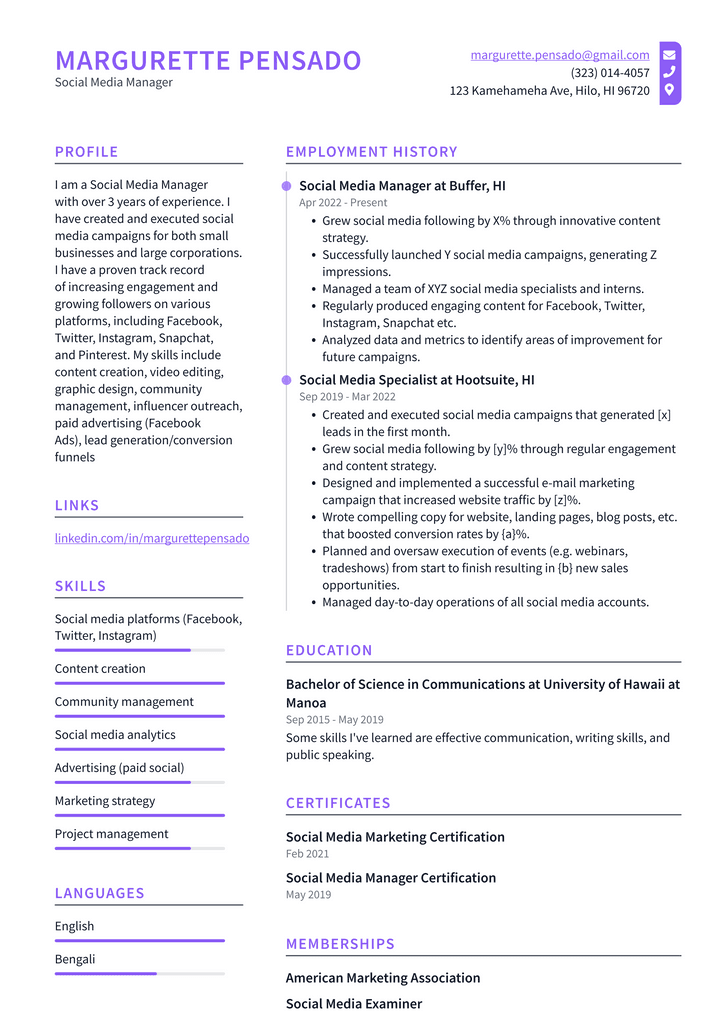
Download This Social Media Manager Resume as PDF
SEO Specialist Resume Example
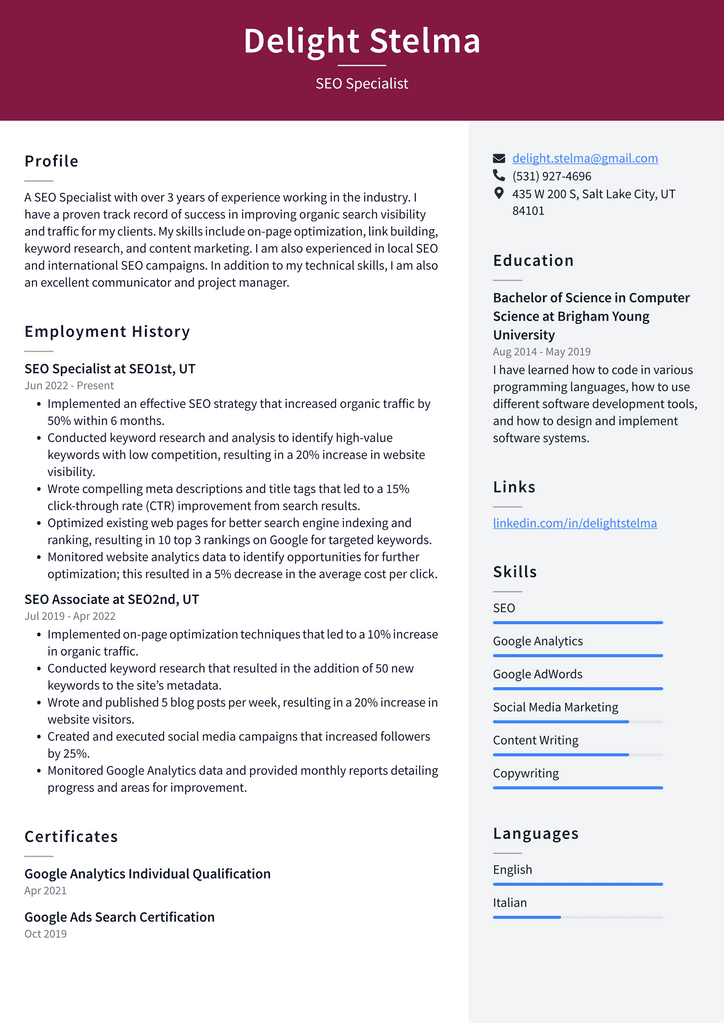
Download This SEO Specialist Resume as PDF
Web Developer Resume Example
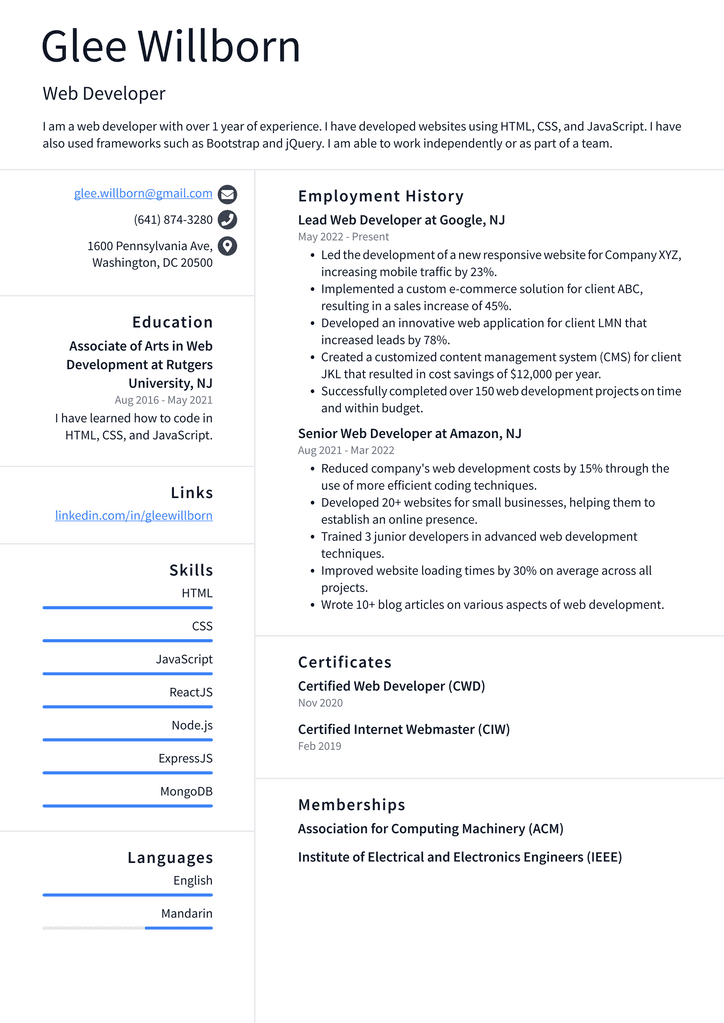
Download This Web Developer Resume as PDF
Event Planner Resume Example
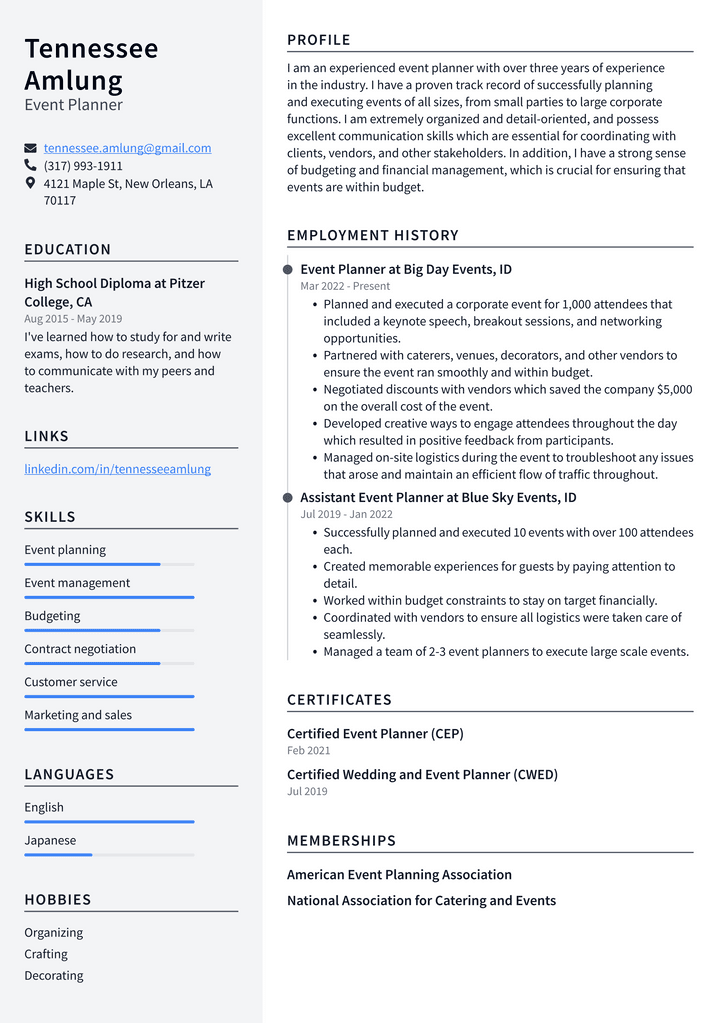
Download This Event Planner Resume as PDF
Public Relations Specialist Resume Example
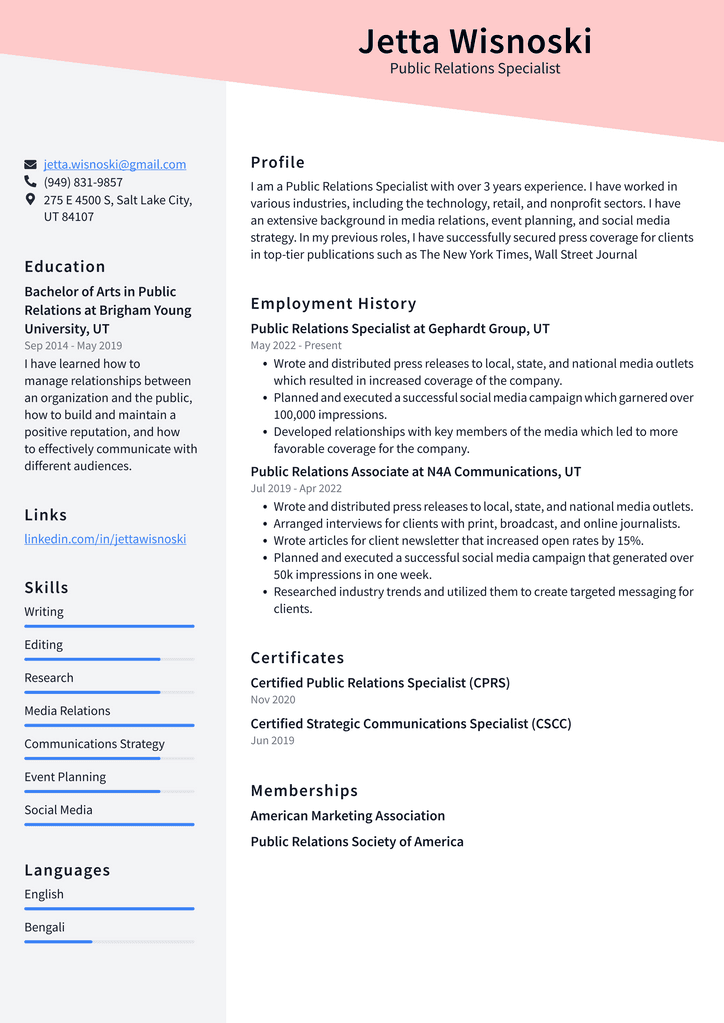
Download This Public Relations Specialist Resume as PDF
Graphic Designer Resume Example
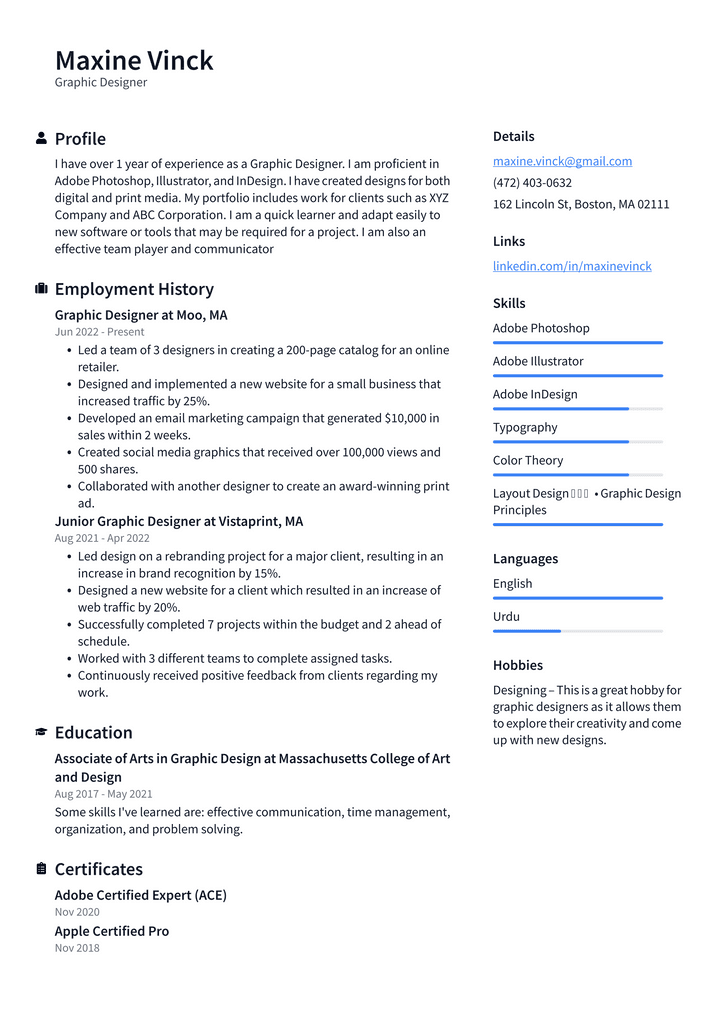
Download This Graphic Designer Resume as PDF
What Is a Content Writer?
A content writer is a person who creates content for businesses and organizations. They create blog posts, white papers, ebooks, infographics, and many other types of content. Their goal is to inform and engage audiences with relevant and valuable information. The majority of content writers work remotely, so they can work flexible hours and have the ability to work from home. Depending on the company, content writers may also be responsible for editing and proofreading their work to ensure it is high-quality. Content writers generally create promotional and educational content for businesses wanting to increase their online presence and drive more website traffic. Their goal is to educate customers and increase their long-term value to the company by providing them with helpful information and persuading them to purchase products or services.
Writing Tips for Your Resume
Your resume or CV should be engaging, concise, and easy to read. A good rule of thumb is that it should only take someone about 10 seconds to decide whether to keep reading or toss it in the “reject” pile. Follow these tips to create a killer resume to help you land your dream job. – Be specific – What do you want to do? What are your career goals? What kind of company is seeking someone like you? – Be bold – Why should the hiring manager choose you? What makes you unique? What can you bring to the table that your competitors can’t? – Don’t be generic – Your resume should be tailored to each position you apply to. While there are general rules of thumb, you should use specific examples to support your claims. – Be concise – Don’t put everything you’ve ever done on your resume. Instead, focus on your most recent experience and the most relevant skills to the job you want. – Be creative – Employers can expect to see some creativity, but not too much. You want to draw attention to your resume, not distract the reader. – Be honest – While you want to sell yourself well, you don’t want to misrepresent yourself or your abilities. – Be you – You want to show them what makes you unique, not what makes you like everyone else. – Don’t overwork it – Your resume is not a novel. It’s a few short paragraphs that give the reader an overview of you as a person. – Stick to one page – If your resume doesn’t fit on one page, you’ve probably gone overboard.
CV vs. Resume: What’s the Difference?
A resume generally summarizes your employment history, education, skills, and personal details. A curriculum vitae (CV) is a more in-depth document that usually includes your employment history, education, skills, awards, and publications. It is generally used for academic or research positions. While the two documents may be similar, many nuances set them apart. If you’re unsure which copy to include with your job application, check with your potential employer to see their preferred format. A resume highlights your most recent experiences and is typically one page long. A CV gives a more in-depth overview of your education, work history, and other achievements. It is often longer than a resume and is sometimes used as a substitute for a resume when applying for academic or research positions.
Learn the Language of Employers
Most hiring managers have a checklist of skills they’re looking for in an ideal candidate. Make it easier for them to check off your qualifications using the same terminology they’re searching for. This means more than just listing “content writer” on your resume. Tailor your resume to each position you apply to by describing your experience with the same terminology an employer would use when advertising the job. For example, if a job description reads “we’re looking for an experienced content writer,” then your resume should say “experienced content writer.”
Use Action Verbs and Bullet Points
Bullet points are a standard feature on resumes. They are short phrases or sentences that emphasize your skills and abilities. They help break up your resume and make it easier to read. They also give hiring managers a quick snapshot of what you can bring to their company and make it easier to skim your resume and find the information they’re looking for. When writing action verbs, remember that you don’t want to brag on yourself too much. Instead, make sure you’re being realistic and that your claims can be proven with examples from your previous work experience.
Don’t Neglect Title and Skills Sentences
Your title and skills sentences give employers a general overview of your work history and experience. These sentences can make the difference between your resume being tossed in the “reject” pile or being kept in the “keep” pile. Make your resume more engaging by summarizing your most recent employment and listing your career history at the top of the resume. Your employment history should be in reverse chronological order, starting with your most recent work experience. You can also add a summary of each company you worked for and your role.
Conclusion
Your resume is a marketing tool that helps you sell yourself to a potential employer. It’s the first impression you make on them and the only chance you have to make an impact with your skills and abilities. A good resume will make you memorable, get you the interview, and give you an advantage over other applicants. However, creating an effective resume can be challenging. To make sure your resume stands out from the competition, you need to follow the examples above and create a resume that is engaging, concise, and easy to read. While there is no surefire way to guarantee a job offer, following these tips will help you put your best foot forward and increase your chances of getting hired.